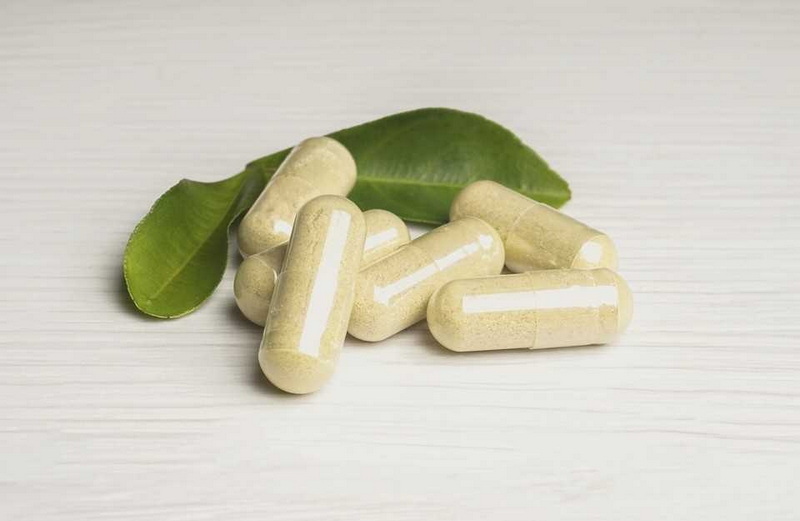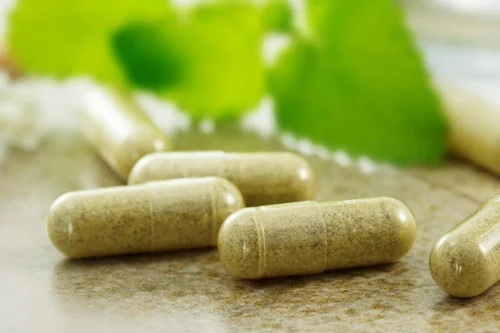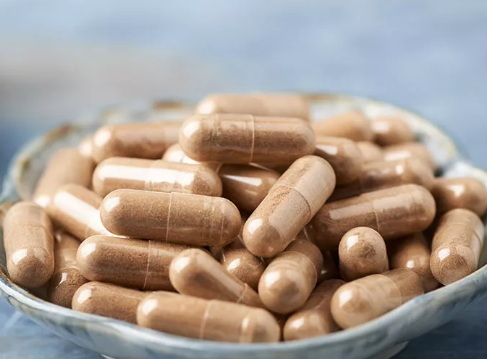Content Menu
● Introduction to Green Tea Extract
>> Benefits of Green Tea Extract
>> Potential Risks and Side Effects
>> Dosage and Administration
● Green Tea Extract in Various Health Conditions
>> Cardiovascular Diseases
>> Weight Management
>> Cancer Prevention
>> Skin Health
● Conclusion
● Frequently Asked Questions
>> 1. What are the main benefits of green tea extract tablets?
>> 2. How should I take green tea extract tablets?
>> 3. Can green tea extract interact with medications?
>> 4. What are the potential side effects of green tea extract?
>> 5. Is green tea extract safe for everyone?
● Citations:
Green tea extract tablets have gained popularity due to their potential health benefits, which are attributed to their high content of antioxidants, particularly catechins like epigallocatechin gallate (EGCG). These tablets are a concentrated form of green tea, offering a convenient way to incorporate the benefits of green tea into one's diet without the need for brewing. In this article, we will explore the uses, benefits, and potential risks associated with green tea extract tablets.

Introduction to Green Tea Extract
Green tea extract is derived from the leaves of the Camellia sinensis plant, which is also used to make black tea and oolong tea. However, green tea is processed differently, preserving more of its natural antioxidants. The extract is often used in dietary supplements due to its potential benefits for heart health, weight loss, and cancer prevention.
Benefits of Green Tea Extract
1. Cardiovascular Health: Studies have shown that green tea extract can help improve cardiovascular health by reducing total cholesterol and LDL cholesterol levels, while increasing HDL cholesterol levels[2]. This can lower the risk of heart disease.
- Reduces total cholesterol
- Reduces LDL cholesterol
- Increases HDL cholesterol
2. Weight Loss: Green tea extract has been associated with weight loss, as it may enhance metabolism and fat burning[6]. It also helps reduce waist circumference and body mass index (BMI).
- Enhances metabolism
- Increases fat burning
- Reduces waist circumference
- Reduces BMI
3. Cancer Prevention: The antioxidants in green tea extract, particularly EGCG, have been studied for their potential role in cancer prevention. While more research is needed, some studies suggest a protective effect against certain types of cancer[5].
4. Antioxidant Properties: Green tea extract is rich in antioxidants, which help protect the body from oxidative stress and cell damage. This can contribute to overall health and potentially reduce the risk of chronic diseases[5].
5. Skin Health: Topical application of green tea extract has been shown to improve skin health by reducing inflammation and protecting against UV damage[5].
Potential Risks and Side Effects
While green tea extract is generally considered safe, there are potential risks to be aware of:
- Liver Injury: High doses of green tea extract, particularly when taken on an empty stomach, may increase the risk of liver injury due to excessive levels of EGCG[3][7].
- Interactions with Medications: Green tea extract can interact with certain medications, such as blood thinners, and may affect their efficacy or increase the risk of side effects.
Dosage and Administration
The recommended dosage of green tea extract varies depending on the intended use. For general health benefits, a dose of 250 to 500 mg per day is common. However, it's crucial to consult with a healthcare provider before starting any supplement regimen.

Green Tea Extract in Various Health Conditions
Cardiovascular Diseases
Green tea extract has been shown to improve lipid profiles and reduce blood pressure, which are key factors in managing cardiovascular diseases[2]. The reduction in LDL cholesterol and increase in HDL cholesterol can help lower the risk of heart disease.
Weight Management
Studies suggest that green tea extract can aid in weight loss by increasing metabolism and enhancing fat burning. This effect is often attributed to the catechins present in the extract[6].
Cancer Prevention
The role of green tea extract in cancer prevention is an area of ongoing research. Some studies indicate that the antioxidants in green tea may help protect against certain types of cancer, though more evidence is needed[5].
Skin Health
Green tea extract has been used topically to improve skin health. It can help reduce inflammation and protect the skin from UV damage, which may reduce the risk of skin cancers and improve skin elasticity[5].
Conclusion
Green tea extract tablets offer a convenient way to incorporate the health benefits of green tea into one's diet. They are associated with improvements in cardiovascular health, weight management, and potentially cancer prevention. However, it's important to be aware of the potential risks, such as liver injury, and to consult with a healthcare provider before starting supplementation.

Frequently Asked Questions
1. What are the main benefits of green tea extract tablets?
Green tea extract tablets are primarily used for their potential benefits in cardiovascular health, weight loss, and cancer prevention. They are rich in antioxidants, which help protect against oxidative stress and cell damage.
2. How should I take green tea extract tablets?
Green tea extract tablets should be taken with food to avoid potential liver damage. The recommended dosage varies, but typically ranges from 250 to 500 mg per day.
3. Can green tea extract interact with medications?
Yes, green tea extract can interact with certain medications, such as blood thinners. It's important to consult with a healthcare provider before starting supplementation.
4. What are the potential side effects of green tea extract?
Potential side effects include liver injury, especially when taken in high doses or on an empty stomach. Other side effects may include stomach upset or interactions with medications.
5. Is green tea extract safe for everyone?
Green tea extract is generally considered safe for most adults. However, pregnant women, children, and individuals with certain health conditions should consult with a healthcare provider before using it.
Citations:
[1] https://pubmed.ncbi.nlm.nih.gov/38031409/
[2] https://www.frontiersin.org/journals/nutrition/articles/10.3389/fnut.2022.1084455/full
[3] https://www.drugs.com/npp/green-tea.html
[4] https://pmc.ncbi.nlm.nih.gov/articles/PMC2855614/
[5] https://www.healthline.com/nutrition/10-benefits-of-green-tea-extract
[6] https://pubmed.ncbi.nlm.nih.gov/26093535/
[7] https://www.canada.ca/en/health-canada/services/drugs-health-products/medeffect-canada/safety-reviews/green-tea-extract-containing-natural-health-products-assessing-potential-risk-liver-injury.html
[8] https://pmc.ncbi.nlm.nih.gov/articles/PMC7555212/
[9] https://my.clevelandclinic.org/health/drugs/20553-green-tea-oral-dosage-forms

 English
English 




























